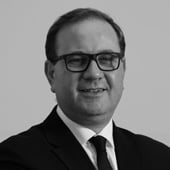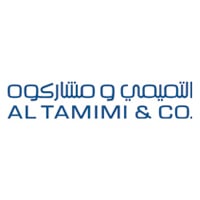
Middle East 2019

General counsel | GardaWorld International Protective Services



Mohamed Helmi el Roubi
General counsel | GardaWorld International Protective Services
‘Since moving to Iraq in June 2003 and founding a law firm there immediately after the fall of the Saddam Hussein regime, my career has been focused on supporting multinationals working in complex, high risk and ambiguous environments across industries’, says Mohamed Helmi el Roubi of his ambitious, highly successful and (both personally and professionally) high-risk career. Indeed, el Roubi reports that choosing particular career highlights ‘is always tough’, but manages to pick several particularly rewarding projects: ‘Since going in-house, I have spent a lot of time working on the more difficult side of the law – compliance, law enforcement and regulatory investigations, for example, and protecting the company; the sort of work that, if you do it well, no one realises that you have done anything at all. The only visible side to that work is the post-resolution remediation and what you do to make things better in terms of processes and culture. With this in mind, I can recall leading the response to a very serious environmental incident in a Middle Eastern country which put the public at risk. Our response ensured we addressed the incident in a responsible manner that resulted in us completely avoiding any legal liability. In addition, investigating serious allegations of corruption in another Middle Eastern country, including a self-report to the US Department of Justice and the Securities and Exchange Commission in which we ultimately secured a declination from the Department of Justice, and established precedent on whistle-blower law in civil litigation, was a major success for me. Finally, I would mention leading investigations on significant fraud and corruption cases in the Middle East and Asia, including reporting to national law enforcement authorities, the Serious Fraud Office and the National Crime Agency in the UK and supporting the business in continued operations. All these experiences shaped me as a professional because they all required an interdisciplinary and cross functional approach to be able to address them’. Going forward, el Roubi believes in-house counsel in the Middle East have to develop more flexibility. ‘The nature of the Middle East, with its diversity of systems and complexity of issues means the legal function is uniquely placed to add value to the business beyond the confines of the traditional functional remit’, he says. ‘The flexibility of mind-set in Middle East businesses around organisational design creates the opportunity for business leaders to embrace a more expansive view of the in-house legal role, and this is something I advocate passionately for’.